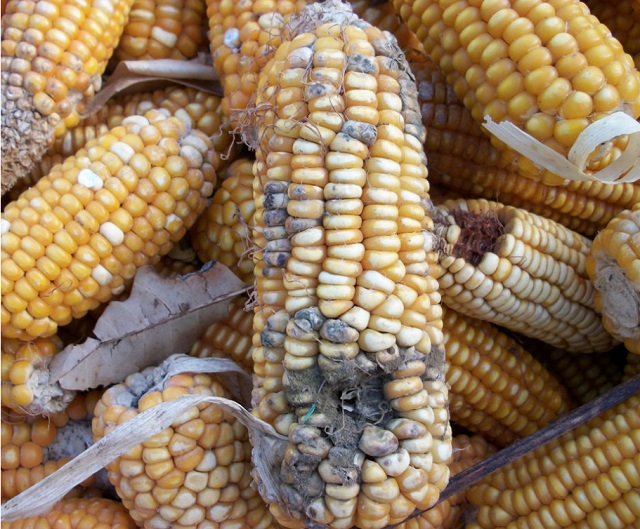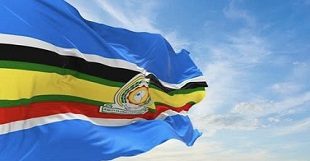
Kenya initially imposed a ban on grain from Uganda citing high levels of aflatoxins
Kampala, Uganda | THE INDEPENDENT | Government has revealed plans to improve the quality and standard of Uganda’s maize following a recent threat from the Kenyan government to ban importation of the staple grain citing high levels of aflatoxins.
Officials from the Ministry of Agriculture, Ministry of Trade, the National Planning Authority-NPA, Uganda National Bureau of Standards-UNBS, Operation Wealth Creation-OWC and National Agricultural Advisory Services-NAADS held a dialogue at the office of the President.
In the meeting chaired by the State Minister for Economic Monitoring Molly Kamukama, the officials discussed how to jointly improve the quality and standard of maize.
It has been agreed that government uses extension workers to sensitize farmers about better farming practices from planting, pest management, harvesting and storage. Government shall also use the media to spread the information as required.
The meeting further agreed to have more silos with dryers and cleaners established across the country to promote better storage of maize. Much of Uganda’s maize is said to be contaminated at harvest and storage stages.
The Executive Director of NAADS, Dr. Samuel Mugasi says while Uganda produces over five million metric tons of maize, the storage capacity is for only one million metric tons.
He says government needs to establish more storage facilities concentrated in major grain producing areas.
He adds that government should register and license maize traders so that only those who fulfill certain conditions like having a quality store are permitted to trade in maize.
The meeting also agreed to fast track the commercialization of the aflasafe seed which is said to be a safe and effective natural product used in management of aflatoxin in the maize, sorghum, and groundnut value chains.
The Commissioner Crop Inspection and Certification at the Ministry of Agriculture, Paul Mwambu says the aflasafe seed being produced by the National Agricultural Research Organisation-NARO, has been submitted for approval to the World Food Organisation as experimentation continues throughout this season.
The seed, he says is quoted with an antoxigen fungi, which is an organism that doesn’t produce aflatoxin with the hope that it will outcompete the toxic fungi that produces aflatoxin.
Mwambu says by end of this season in July, they hope to roll it out to farmers to start planting.
Minister Kamukama tasked Commissioner Mwambu to draw a clear implementation plan on how they intend to use extension workers and the parish model of government to deliver the message to the people. She further asked the representative from NPA to review available plans, programs and funding to identify opportunities they can tap into to address the aflatoxin issue.
She says the committee after taking action points, anyone, farmer or trader found to be working against government guidelines shall be dealt with. She says the challenge at hand is partly because the grain policy has not been implemented effectively and that should change.
The committee that sat on Thursday is expected to meet again soon with each member presenting an elaborate paper on how they shall help address the challenge at hand. The members are also expected to deliver on the assignments given to them as per the resolutions reached.
The Country Director of World Food Program, El-Khidir Daloum says maize from Uganda has been found to have high levels of aflatoxin, rotten, high moisture content, infestation and dust, pests and high pesticide content among others.
Daloum says Uganda needs to strengthen its system to improve monitoring, sensitise the public about better farming and harvesting practices and also engage the private sector including traders and factory owners.
Daloum says Uganda can’t afford to export even a small amount of poor quality maize because it tarnishes its name in the market.
State Minister for Trade Michael Werikhe Kafabusa says Uganda and Kenya have agreed to a joint monitoring mechanism moving forward.
*****
URN
 The Independent Uganda: You get the Truth we Pay the Price
The Independent Uganda: You get the Truth we Pay the Price


